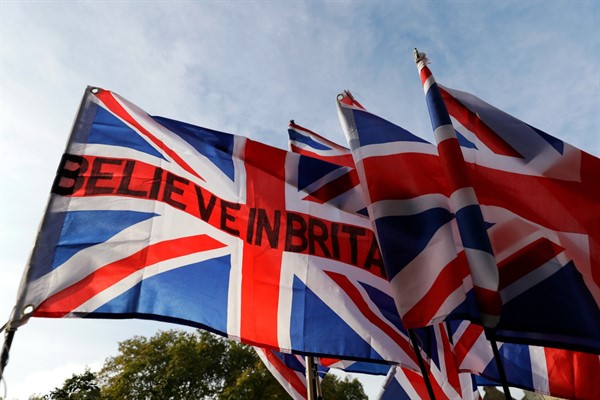Over the past four years, as the United Kingdom has wrestled with the consequences of its narrow vote to leave the European Union, there has been little to no broader foreign policy debate in the country. Instead, Britons seem to have become caught between three temperaments. There are the catastrophists, who argue the U.K. has become completely irrelevant on the international stage as a result of Brexit; the nostalgics, who see a powerful Britain through the lens of a great colonial power; and the denialists, who refuse to accept that Britain must adapt to a changing global context. All are characterized by a surfeit of emotion and deficit of strategy⎯and none have answers to the key questions their government must now answer.
Can Britain continue to be a global leader after Brexit? Is the country doomed to be a buffeted outcast, squeezed between the world’s regulatory blocs or caught up in the great-power competition between the United States and China? Or will it find an important, new role in world affairs? As the interminable Brexit process draws to an end, 2020 has seen Britain’s foreign policy move in fits and starts, at once concerning and highly promising.
Some steps⎯like successfully gathering allies to back it in protest over China’s repressive national security law in Hong Kong⎯have been widely acclaimed in Washington, as the assertion of a renewed British commitment to an independent and values-based foreign policy. Other moves⎯like London’s recent threat to breach the Withdrawal Agreement it negotiated with the EU less than a year ago, or its decision to remove equipment from the Chinese telecommunications giant Huawei from the U.K.’s 5G infrastructure⎯have been seized upon by critics in Brussels as proof that the country is heading toward economic and political isolation, while becoming subject to American diktats. And though Brexit supporters hoped leaving the EU would help them escape the bloc’s rigid market regulations, the reality is that British businesses will still need to comply with them in order to continue exporting to EU countries. And now, Britain will have no role in shaping them.

